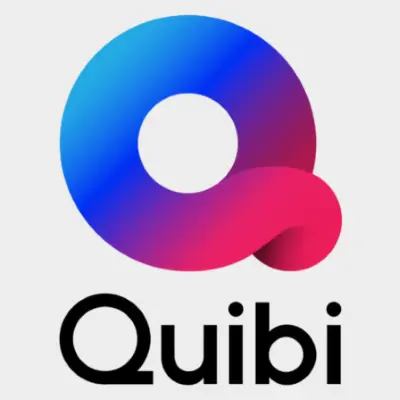Did 2020 kill Quibi? Or did Quibi kill Quibi?
-

Quibi founder Jeffrey Katzenberg, in confirming Quibi's demise after less than seven months, said "the world has changed dramatically since Quibi launched and our standalone business model is no longer viable." So was the unusual circumstances of 2020, specifically the coronavirus pandemic, to blame for Quibi's demise? "As with any simplistic set-up that boils the complexity of the world down to two simple options, the answer here is probably 'why not both?'" says Kathryn VanArendonk. "I think it’s likely that 2020 killed Quibi much faster than it otherwise would’ve died. Founder Jeffrey Katzenberg infamously blamed the pandemic for Quibi’s failure to launch, and CEO Meg Whitman cited the company’s decision to halt its marketing efforts during this summer’s Black Lives Matter protests as a factor in its slow growth. They’re both not wrong that this year made for some exceptionally difficult circumstances. It is hard to imagine what a big midsummer Quibi ad campaign would’ve looked like, but Whitman is probably correct that there was no way to do it in the middle of a global outcry over systemic racism in a way that would’ve seemed … uh … graceful. Likewise, a mobile video platform was always going to be a tough sell at precisely the time when many people suddenly found themselves with no opportunity to be mobile. In the end, though, I’m extremely doubtful that a 2020 without unprecedented Black Lives Matter protests and without a pandemic would’ve been enough to save Quibi. It would’ve helped greatly if any of the shows had been significantly more appealing or popular. It also would’ve helped if the vaunted “turnstile” technology — an in-app feature that would automatically adjust the video frame depending on whether you held the phone vertically or horizontally — did something other than make all the horizontal frames feel sparse and all the vertical frames weirdly cropped. It probably would’ve helped if its name sounded less silly, and if Katzenberg and Whitman got along, and if anyone at the company had a vision for what the content should look like rather than just how big the money could be. The thing I think truly killed Quibi, though, is that what was intended as a mobile-only video platform remembered the video part but forgot that it needed to exist on a phone...Quibi was a video outlet for your phone that forgot what a phone is for: communicating with other people. Until very recently, long after the initial launch glow had faded, there was no way to screenshot Quibi shows. You couldn’t take clips and send them to your friends, you couldn’t add your own comment, there were no immersive camera features, and it was almost impossible to even send a link of your favorite episode to someone else."
ALSO:
- Quibi was an incredible display of billionaire hubris, representing everything wrong with the streaming apocalypse: "A cynic might argue that Quibi’s doom seemed inevitable from the start; it is, after all, an app for young 'digital natives' designed by two sexagenarian billionaires whose cultural touchstones include Jane Fonda workout videos and the History channel series <i>Grant. (Seriously.)," says Laura Bradley. "And besides—on what planet did we need another video platform to entertain us as we wait in line for coffee or kill time on a park bench? In what <i>universe would enough people pay $5 to $8 for that service?" Bradley adds: "And then came the cardinal issue with far too many nascent streaming services: The shows themselves were largely nothing to write home about. Save for the odd Emmy winner here or a campy Sam Raimi joint starring Rachel Brosnahan as a girl with a golden arm there, Quibi will likely be remembered, primarily, as a microcosm for 2020’s streaming apocalypse: So many platforms, so many shows, so many A-listers—and still, somehow, so little to watch."
- New reasons why Quibi struggled seemed to arrive every day, but the core problem comes back to a misunderstanding of how modern audiences watch TV: "Quibi was marketed as a streaming service to be consumed casually, where subscribers would watch episodes while standing in line at the grocery store or waiting for the bus," as Indiewire points out. But a plethora of free services already offer those distractions (YouTube, Vimeo, etc.) and social media can be a similar (free) time-filler with the added (free) benefit of interactivity. (Twitter, TikTok, Snapchat, and more all stream videos in one way or another, while letting you talk to your friends, favorite celebrities, or brands.) Even if people did prioritize Quibi over other apps, what happens when your mobile-only service is being sold to an immobile world? Quibi was designed to be used by on-the-go millennials, but launched on April 6, 2020, during the coronavirus pandemic which forced many television viewers indoors where they had access to other streaming services on larger screens. The streaming service also lacked key features at launch, such as the ability to screenshot or cast Quibi’s programming to televisions via tech such as AirPlay and Chromecast. The pandemic didn’t help Quibi — but it also can’t be considered the reason for its failure."
- Quibi is going to go down as a case study at Harvard Business School on what not to do when launching a streaming service
- An emotional Katzenberg suggested Quibi his staffers listen to Anna Kendrick's “Get Back Up Again" from the film Trolls
TOPICS: Quibi, Jeffrey Katzenberg, Meg Whitman
